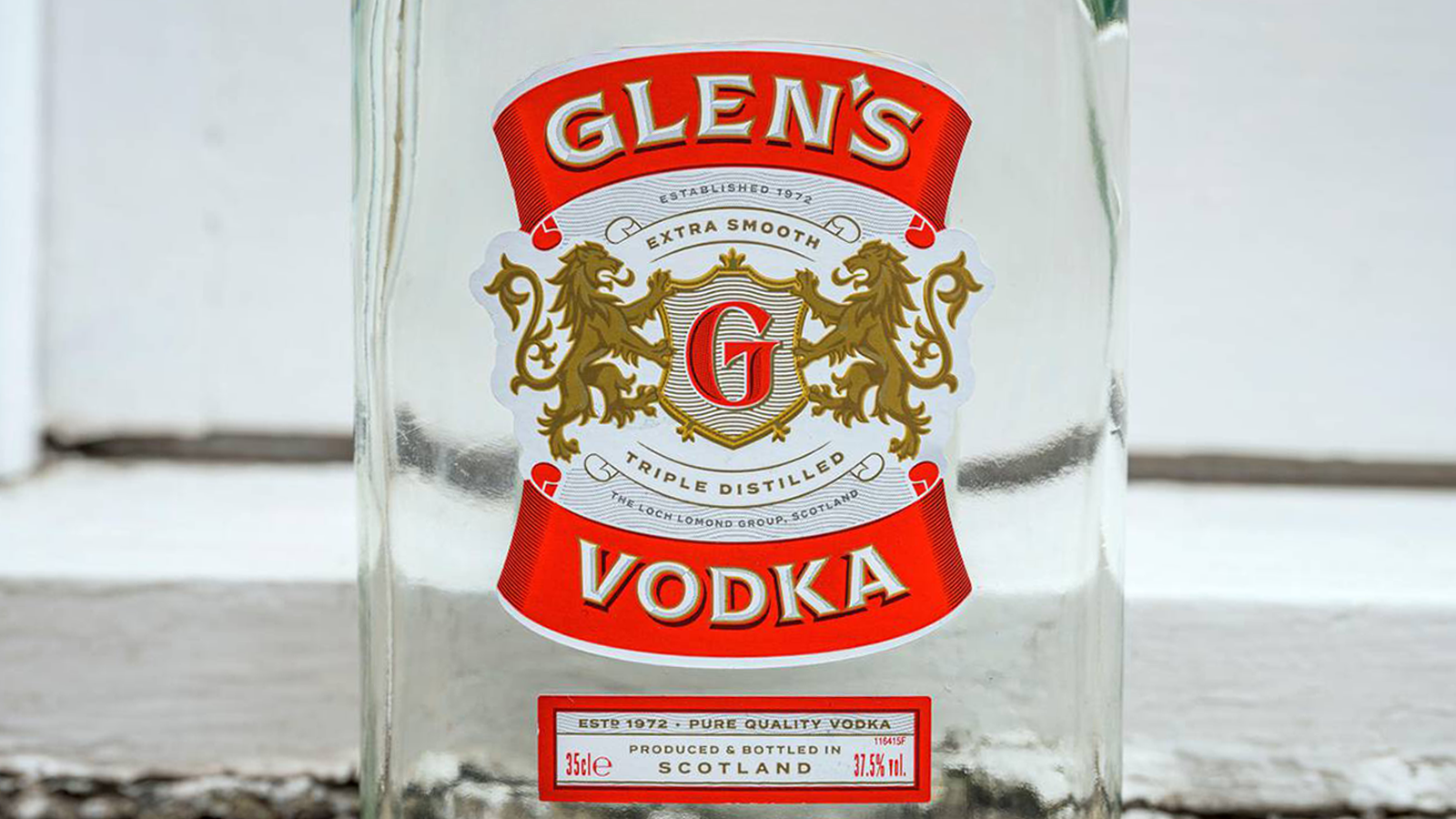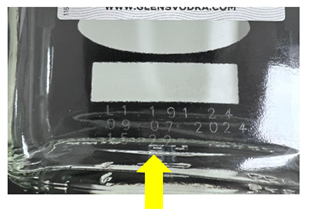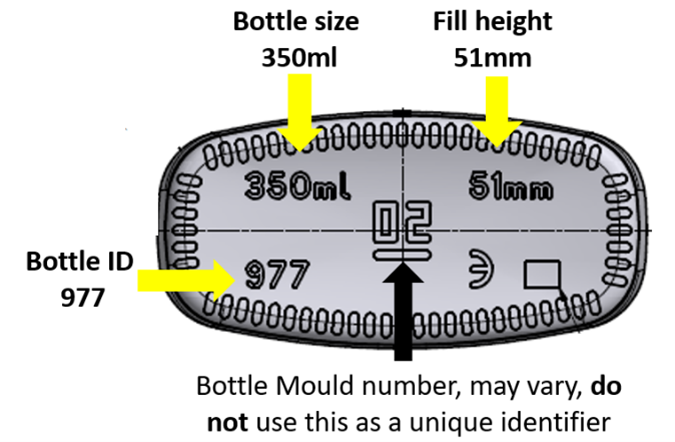Warning over fake vodka containing harmful chemical

The fake bottles are made to look like the genuine Glen's Vodka
- Published
The public are being warned to stay alert when purchasing or consuming Glen's vodka after counterfeit bottles containing a harmful chemical were discovered.
Food Standards Scotland (FSS) said it had found 35cl bottles, or a half bottle, disguised to look like genuine Glen's vodka.
A chemical known as isopropyl was found in the illegally labelled vodka, seized by the agency, which can be dangerous if consumed.
Vodka containing isopropyl will taste and smell "very different" in comparison to normal alcohol and will be very strong, the FSS have said.

A genuine bottle can be identified by an etched code on the back label

A bottle can also be identified through the base markings
Symptoms of isopropyl alcohol poisoning include stomach pain, vomiting, dizziness, sore head, confusion, slow breathing. In some severe cases, FSS have warned it could lead to a coma or death.
Genuine Glen's vodka has a laser etched code imprinted on the back and base of the glass bottle.
A legitimate product can also be identified by size, fill height and a bottle ID - FSS said these markings would not vary in position or detail.
BBC Scotland reported last year that similar counterfeit bottles had been discovered by The Food Standards Agency (FSA).
In a statement Food Standards Scotland said: "The scale of distribution of counterfeit product is still unknown.
"If you believe you may have consumed alcohol that has a strong smell and a very different taste to normal and are showing any of the symptoms described, please contact the NHS 24 on 111 immediately.
"If you have severe symptoms, call 999."